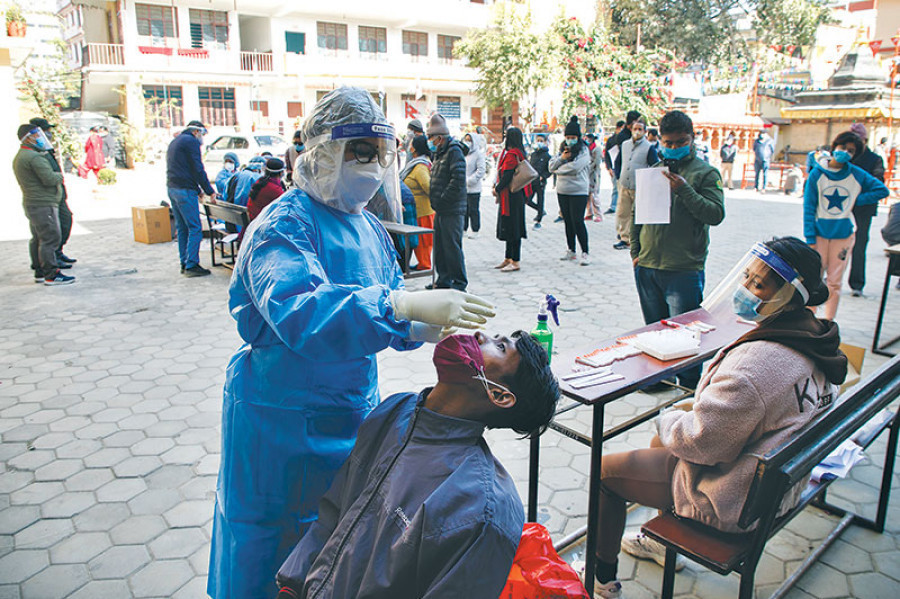Health
Highly contagious double mutant Indian variant responsible for current surge of Covid-19 cases
A WHO collaborating centre in India confirmed that all samples of the infected people belong to B.1.617, known as double mutant variant, which is highly infectious and possibly more lethal.
Arjun Poudel
The highly infectious, and possibly more lethal, sub-lineages of double mutant variants of the coronavirus, known as B.1.617.2, and B.1.617.1 have been found to be responsible for the current surge in the new cases throughout the country.
The Ministry of Health and Population, confirmed the presence of B.1.617.2, and B.1.617.1 in the swab samples of infected people.
The ministry had collected 35 swab samples randomly from across the country and sent for whole genome sequencing to the World Health Organisation collaborating centre for genome sequencing CSIR-Institute of Genomics and Integrative Biology, India.
“Of the 35 swab samples on which whole genome sequencing tests were performed, B.1.617.2 (sub lineage of B.1.617 )has been confirmed in the 34 samples, which is 97 percent,” a press statement of the Health Ministry said. “B.1.617.1 (sub-lineage) has been found in one swab sample.”
The World Health Organisation had classified the B.1.617 variant of ‘global concern’ on May 10. The variant has already spread in more than 30 countries, according to the UN health agency.
With the detection of the two new sub lineages of the B.1.617, three new variants of Covid-19 have been confirmed in Nepal.
Earlier in January, a fast spreading UK variant, known as B.1.1.7 was confirmed in three people returned from the United Kingdom.
Some independent researchers, who had carried out whole-genome sequencing in Nepal, last week told the Post that the highly infectious, and possibly more lethal, sub-lineage of double mutant variant of the coronavirus, known as B.1.617.2, could be the reason for the fast spread of the disease.
“Of the 12 swab samples of the infected people collected randomly from Lalitpur, B.1.617.2 was found in swab samples of nine people,” Dibesh Karmacharya, executive director at the Center for Molecular Dynamics-Nepal, had told the Post last week. “This B.1.617.2 appears to be spreading more quickly than two other identified subtypes of the Indian variant.”
Experts for some time have been raising concerns if the Indian double mutant was responsible for the fast spread of the virus in Nepal, which shares a long porous border with India.
The World Health Organisation’s chief scientist Soumya Swaminathan, in an interview with the AFP new agency, had said that the B.1.617.2 variant may be dodging vaccine protections.
"The epidemiological features that we see in India today do indicate that it's an extremely rapidly spreading variant,” the AFP quoted Swaminathan as saying.
She further said it has some mutations which increase transmission, and which also potentially could make [it] resistant to antibodies that are generated by vaccination or by natural infection.




 8.54°C Kathmandu
8.54°C Kathmandu















